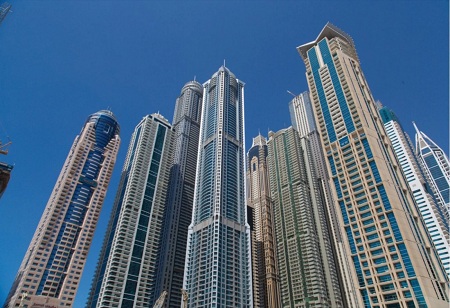
Consolidation in the real estate seems to clearly playing out in the favour of top property developers. As small and unbranded players move out of the market, bigger players are increasing both their market share and sales bookings, thanks to buyers moving towards bigger brands. The cumulative sales bookings of top nine listed developers showed a CAGR growth of 24% between FY19 and FY 23 and stood at Rs 70,000 crore, said Anand Lakhotia, co-head, real estate funds Motilal Oswal Alternates. According to Anarock Property Consultants, FY23 saw the highest revenues posted by top 8 listed players in the last three financial years. Since 2016, the industry saw substantial disruption due to events like demonetisation, RERA, GST, NBFC crisis, and the pandemic which forced a number of real estate developers to exit the market. As a result, the ones who demonstrated resilience, secured capital access, and maintained quality standards witnessed a significant increase in their market share, said Lakhotia.
In addition, smaller players are increasingly aligning with larger counterparts through JDA (joint development and DM (development management) structures. This collaborative approach contributes to the expansion of market share for these listed players. Anuj Puri, chairman of Anarock said that grade A developers including the listed developers continue to corner the market. “If we look back, more than 60% of the 3.58 lakh units launched in the year 2022 was by branded developers who also sold more than 55% of the 3.66 lakh units purchased in this period,” he said. This trend is only continuing this year, and buyers don’t mind paying a little extra because their desire to avoid construction-related risks also plays a role. While the overall Indian residential market size across India’s top 8 cities in FY22 crossed FY20 levels (pre-Covid), FY23 industry sales booking value grew 36% YoY to Rs 29,000 crore. While the pace of market share gains is expected to be slower given the strong market share gains already achieved over FY20-FY23, the brokerage estimates the pan-Indian residential market share for its coverage to grow from 24% in FY23 to 27% in FY25, Chattopadhyay said.
However, surprisingly, listed players had very few launches in Q1FY24. DLF and Oberoi Realty did not have any launches during Q1. Analysts said typically, there are more launches in the second half due to festival season. Some also believe that approvals are getting delayed in many cities which are pushing the launch dates. Top developers such as Prestige Estates and Brigade Enterprises seem to be clear gainers from the consolidation. For example, Brigade Enterprises has grown at CAGR of 26% in terms pre-sale value in the last four years.
Pavitra Shankar , managing director of Brigade Enterprises said that since 2016, the real estate sector has been subjected to widespread disruptions As a result, the industry has consolidated substantially with some markets seeing 60% or more of players exiting the business, she said. “The market share of those developers who could withstand the shocks to the system, access capital, and deliver quality products on time, thus increased substantially,” Shankar said, adding that the company is aiming at double digit growth in residential portfolio. Experts forsee good prospects for listed companies in the years ahead. Razack of Prestige added that as long as jobs continue to get created in its key markets such as Bengaluru, Mumbai and Hyderabad, it sees a healthy double-digit CAGR growth in the sales bookings in the coming 2-3 years. Puri of Anarock said that while they did expect some short-term turmoil in early 2023 due to various factors such as inflation, global recession, etc. but interestingly the first half of CY2023 has recorded the best-ever sales across the top 7 cities,” he said.
We use cookies to ensure you get the best experience on our website. Read more...
Copyright © 2025 HomesIndiaMagazine. All Rights Reserved.